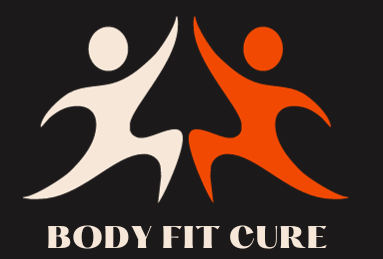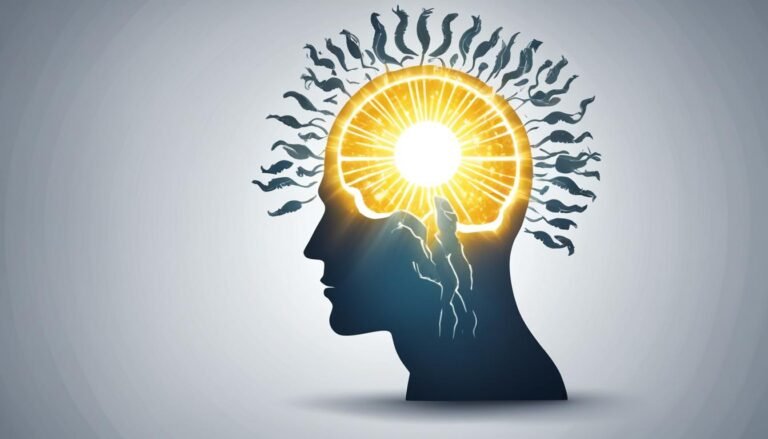Are you tired of feeling uncomfortable in your own skin? Do you yearn to shed those extra pounds and regain your confidence? I’ve been there too, and I know how frustrating it can be. But let me tell you, there is hope. With the right strategies and a little determination, you can achieve your weight loss goals and transform your life.
In this article, I will share with you eight proven tips to lose weight that will help you slim down effectively. These tips are not quick fixes or fad diets – they are sustainable, healthy approaches to weight loss that have been backed by science and countless success stories.
Weight loss is a journey, and it’s important to approach it with the right mindset and knowledge. So, whether you’re just starting or have been struggling for a while, this article is for you. Together, let’s take the first step towards a healthier, happier you.
Key Takeaways:
- Implementing these eight tips will help you lose weight effectively
- These tips are based on scientific evidence and real success stories
- Approach weight loss as a journey and prioritize a healthy mindset
- Don’t expect quick fixes or fad diets to bring lasting results
- Your weight loss journey begins today – let’s start transforming your life
Understanding the Basics of Weight Loss
When it comes to weight loss, it’s important to understand the basics. By having a solid foundation of knowledge, you can make informed decisions that support your weight loss goals. In this section, we will explore the fundamental principles of weight loss and provide essential information to help you on your journey.
One of the key components of weight loss is the concept of calories. Calories are units of energy that our bodies use to function. When we consume more calories than we burn, our bodies store the excess energy as fat, leading to weight gain. Conversely, when we burn more calories than we consume, our bodies tap into stored fat for energy, resulting in weight loss. By creating a calorie deficit through a combination of diet and exercise, we can achieve sustainable weight loss.
Metabolism also plays a crucial role in weight loss. Our metabolism refers to the processes in our bodies that convert food into energy. Some people naturally have faster metabolisms, allowing them to burn more calories at rest. However, factors such as age, genetics, and body composition can influence our metabolic rate. It’s important to note that although metabolism plays a role in weight loss, it is not the sole determinant. By adopting healthy lifestyle habits, we can optimize our metabolism and support weight loss.
Energy balance is another fundamental concept in weight loss. It refers to the balance between the calories we consume and the calories we burn. To lose weight, we need to create a negative energy balance by consuming fewer calories than we expend. This can be achieved through a combination of reducing calorie intake and increasing physical activity. By maintaining a consistent energy balance over time, we can achieve steady and sustainable weight loss.
In addition to calories, metabolism, and energy balance, nutrition, physical activity, and overall health are all integral to successful weight loss. A well-rounded approach that emphasizes whole foods, balanced meals, regular exercise, and good sleep hygiene can significantly support your weight loss efforts. By prioritizing these fundamental aspects, you can create a solid foundation for sustainable weight loss.
Now that we’ve covered the basics, let’s move on to exploring the mindset needed for successful weight loss in the next section.
Creating a Mindset for Successful Weight Loss
When it comes to weight loss, having the right mindset is crucial for achieving long-term success. It’s not just about following a diet or exercise plan; it’s about cultivating a positive mental attitude and setting realistic goals that align with your unique journey. By developing a weight loss mindset, you can overcome challenges, stay motivated, and triumph on your path to a healthier, happier you.
The Importance of Setting Realistic Goals
Setting realistic goals is essential for sustainable weight loss. Instead of fixating on an unrealistic ideal, focus on achievable milestones that align with your body and lifestyle. By setting small, attainable goals, you can celebrate consistent progress and avoid becoming overwhelmed or discouraged. Remember, weight loss is a gradual process, and every step forward is a victory worth celebrating. Set yourself up for success by creating SMART goals that are Specific, Measurable, Achievable, Relevant, and Time-bound.
Adopting a Positive Mental Attitude
A positive mental attitude is a powerful tool in your weight loss journey. Believing in yourself, embracing self-compassion, and maintaining an optimistic outlook can make all the difference in achieving your goals. Focus on your strengths, celebrate your achievements, and visualize your success. Surround yourself with a supportive network of friends, family, or a weight loss community who can provide encouragement and accountability. Practice self-care and engage in activities that bring you joy and reduce stress. By cultivating a positive mindset, you can overcome obstacles, stay committed, and forge a path to sustainable weight loss.
| Benefits of a Weight Loss Mindset | Ways to Cultivate a Positive Mental Attitude |
|---|---|
| 1. Increased motivation and determination | 1. Practice gratitude and positive affirmations |
| 2. Enhanced self-esteem and body confidence | 2. Surround yourself with positive influences |
| 3. Improved resilience and ability to overcome setbacks | 3. Engage in stress-reducing activities like meditation or yoga |
| 4. Greater focus on long-term health and well-being | 4. Set aside time for self-care and relaxation |
| 5. Strengthened commitment to sustainable lifestyle changes | 5. Seek support from a weight loss coach or counselor |
08 Tips to Lose Weight
When it comes to effective weight loss, incorporating the right strategies is crucial. These 08 tips will provide you with the guidance you need to kickstart your weight loss journey and achieve your goals. Let’s dive into each tip in detail:
1. Balanced Nutrition: Pay attention to your daily calorie intake and focus on consuming nutrient-dense foods. Incorporate a variety of fruits, vegetables, lean proteins, whole grains, and healthy fats into your diet.
2. Regular Exercise: Engage in physical activity that you enjoy and that suits your lifestyle. Aim for a combination of cardiovascular exercises, such as walking or cycling, and strength training exercises to build muscle and boost your metabolism.
3. Adequate Hydration: Drinking enough water throughout the day is essential for weight loss. Staying hydrated helps regulate your appetite, improves digestion, and supports overall bodily functions.
4. Quality Sleep: Prioritize getting enough sleep each night as it plays a significant role in weight management. Lack of sleep can disrupt your hormone levels and increase cravings, leading to overeating.
5. Portion Control: Be mindful of portion sizes and listen to your body’s hunger and fullness cues. Use smaller plates and bowls, and avoid eating straight from the package to prevent overeating.
6. Mindful Eating: Slow down and savor each bite by practicing mindful eating. Focus on the taste, texture, and aroma of your food, and listen to your body’s signals of satisfaction.
7. Accountability: Stay accountable by tracking your progress and seeking support from a friend, family member, or a professional. This can help you stay motivated and stay on track with your weight loss goals.
8. Consistency: Stick to your weight loss routine consistently. Remember that results take time, and adopting healthy habits for the long term is key to sustainable weight loss.
“Consistency is key when it comes to successful weight loss.”
By following these 08 tips, you can create a well-rounded weight loss plan that promotes a healthy lifestyle and helps you achieve your desired weight. Remember, every person’s weight loss journey is unique, so it’s essential to find what works best for you.
Now, let’s move on to the next section and explore the importance of making dietary changes for effective weight loss.
Making Dietary Changes for Effective Weight Loss

When it comes to weight loss, making dietary changes is essential. By adopting a healthier approach to your meals, you can achieve long-lasting results and improve your overall well-being. In this section, we will explore two key aspects of dietary changes for effective weight loss: choosing nutrient-dense foods and understanding portion sizes.
Choosing Nutrient-Dense Foods
One of the most important aspects of a weight loss diet is incorporating nutrient-dense foods. These foods are packed with essential vitamins, minerals, and other beneficial compounds while being relatively low in calories. By making these foods a regular part of your meals, you can maintain proper nutrition while reducing calorie intake.
Some examples of nutrient-dense foods include:
- Leafy greens like spinach, kale, and Swiss chard
- Colorful fruits and vegetables like berries, citrus fruits, and bell peppers
- Lean proteins such as chicken breast, turkey, and tofu
- Healthy fats like avocados, nuts, and olive oil
- Whole grains like quinoa, brown rice, and whole wheat bread
- Low-fat dairy products like Greek yogurt and cottage cheese
By incorporating these nutrient-dense foods into your diet, you can ensure that your body receives the necessary nutrients while promoting weight loss.
Understanding Portion Sizes
In addition to choosing nutrient-dense foods, understanding portion sizes is crucial for successful weight loss. It’s common for individuals to underestimate the amount of food they consume, which can lead to overeating and hinder progress.
One helpful strategy is to familiarize yourself with recommended portion sizes. The table below provides a general guide for common foods:
| Food Group | Serving Size |
|---|---|
| Proteins | 3-4 ounces (about the size of a deck of cards) |
| Grains | 1/2 cup cooked grains or 1 ounce of bread |
| Fruits | 1 medium fruit or 1/2 cup cut-up fruit |
| Vegetables | 1/2 cup cooked vegetables or 1 cup raw vegetables |
| Dairy | 1 cup of milk or yogurt |
| Fats | 1 tablespoon of oil or butter |
By being mindful of portion sizes and practicing portion control, you can avoid consuming excess calories and maintain a balanced diet.
The Role of Hydration in Weight Loss
When it comes to weight loss, most people focus on dietary changes and exercise. While these factors are crucial, many overlook the importance of hydration. Staying adequately hydrated plays a significant role in supporting the weight loss process and achieving your goals.
Drinking an adequate amount of water is essential for weight loss. Water aids digestion, helps maintain a feeling of fullness, and promotes proper metabolism. When you’re dehydrated, your body may mistake thirst cues for hunger, leading to unnecessary snacking and calorie intake.
Furthermore, water has zero calories, making it an excellent choice for hydration without adding unnecessary calories to your diet. It can replace high-calorie beverages like soda or juice, reducing your overall calorie consumption and supporting weight loss efforts.
It’s recommended to drink at least eight glasses of water per day, but individual needs may vary. **Hydration and weight loss** go hand in hand, so it’s essential to pay attention to your body’s thirst signals and drink accordingly.
Here are a few tips to help you increase your water intake:
- Carry a reusable water bottle with you throughout the day for easy access to hydration.
- Set reminders on your phone or use hydration apps to remind you to drink water regularly.
- Drink water before and after meals to help control your appetite and support digestion.
- Opt for water-rich foods like fruits and vegetables, which can contribute to your overall hydration.
- Flavor your water with citrus slices, cucumber, or herbs to make it more enjoyable.
Remember that staying hydrated is not only beneficial for weight loss but also for overall health and well-being. So, make sure to prioritize your fluid intake and reap the benefits it can offer on your weight loss journey.
Incorporating Exercise into Your Routine

Exercise is an essential component of any weight loss routine. It not only helps burn calories but also improves overall health and well-being. Finding the right exercise for weight loss can be a daunting task, but with a few tips and considerations, you can discover activities that suit your lifestyle and preferences.
Finding Activities That Suit Your Lifestyle
When it comes to exercise for weight loss, it’s important to choose activities that you enjoy and can easily incorporate into your daily routine. Consider the following tips:
- Identify activities you genuinely enjoy, such as walking, cycling, swimming, dancing, or playing a sport.
- Find ways to incorporate exercise into your daily activities, such as taking the stairs instead of the elevator or walking instead of driving for short distances.
- Join group classes or recreational clubs that offer activities you’re interested in. This can make exercising more enjoyable and provide a social aspect.
- Experiment with different activities to find what suits you best. Don’t be afraid to try new things and step out of your comfort zone.
Remember, the key is to make exercise a regular part of your lifestyle. Consistency is crucial for long-term weight loss success.
Combining Cardio and Strength Training for Optimal Results
When it comes to exercise for weight loss, incorporating both cardiovascular exercise and strength training is essential. Cardiovascular exercises, such as running, biking, or aerobics, help burn calories and improve heart health. Strength training, on the other hand, builds lean muscle mass, which helps boost metabolism and burn more calories even at rest.
Combining cardio and strength training in your workout routine can maximize weight loss results. Aim for at least 150 minutes of moderate-intensity cardiovascular exercise or 75 minutes of vigorous activity each week. Additionally, incorporate two or more days of strength training exercises targeting major muscle groups.
| Cardiovascular Exercise | Examples |
|---|---|
| Running | Treadmill, outdoor jogging |
| Cycling | Stationary bike, outdoor biking |
| Swimming | Lap swimming, water aerobics |
| Aerobics | Zumba, step aerobics |
| Strength Training | Examples |
|---|---|
| Weightlifting | Dumbbell exercises, barbell exercises |
| Bodyweight exercises | Push-ups, squats, lunges |
| Resistance band exercises | Bicep curls, band pull-aparts |
| Pilates or yoga | Mat exercises or poses |
Always consult with a healthcare professional or certified trainer before starting any new exercise routine, especially if you have any underlying health conditions.
Prioritizing Sleep to Enhance Weight Loss Efforts
Getting enough quality sleep is crucial for effective weight loss. Lack of sleep can have a negative impact on your metabolism, hormone regulation, and overall weight management. When you’re sleep-deprived, your body tends to produce more ghrelin, the hunger hormone, which can lead to increased cravings and overeating. It can also affect insulin sensitivity, making it harder for your body to regulate blood sugar levels.
Moreover, inadequate sleep can impede your ability to make good food choices and stick to your weight loss plan. Research has shown that sleep deprivation can lead to higher consumption of calorie-dense, high-sugar foods.
“Sleep is the golden chain that ties health and our bodies together.” – Thomas Dekker
To optimize your sleep and support your weight loss efforts, consider the following tips:
- Establish a regular sleep schedule by going to bed and waking up at the same time every day, even on weekends.
- Create a calming bedtime routine to signal to your body that it’s time to wind down. This may include activities such as reading a book, taking a warm bath, or practicing relaxation techniques like deep breathing.
- Avoid caffeine and stimulating activities close to bedtime, as they can interfere with falling asleep and disrupt sleep quality.
- Create a sleep-friendly environment by keeping your bedroom dark, quiet, and at a comfortable temperature.
- Avoid electronic devices, such as smartphones and tablets, before bed as the blue light they emit can interfere with melatonin production and disrupt sleep.
- Incorporate regular physical activity into your daily routine to promote better sleep quality. Just remember to avoid exercising too close to bedtime, as it can make it harder to fall asleep.
- Consider investing in a comfortable mattress and pillow to enhance your sleep quality.
By prioritizing sleep and implementing these tips, you can improve your sleep duration and quality, leading to better overall health and enhanced weight loss results.
| Sleep Benefits for Weight Loss | How Lack of Sleep Impacts Weight Loss |
|---|---|
| 1. Restores energy levels for more productive workouts | 1. Increases production of ghrelin, the hunger hormone |
| 2. Promotes better food choices and reduces cravings | 2. Decreases production of leptin, the satiety hormone |
| 3. Supports proper hormone regulation | 3. Disrupts insulin sensitivity |
| 4. Enhances muscle recovery and growth | 4. Affects decision-making and impulse control |
Debunking Common Weight Loss Myths
When it comes to weight loss, there is an abundance of information out there. However, not all of it is accurate or reliable. In this section, we will address some common weight loss myths and misconceptions, and provide you with the tools to separate fact from fiction.
Always Check Your Sources
One of the most important things when it comes to weight loss is to always check your sources. With the proliferation of blogs, social media, and self-proclaimed experts, it’s crucial to critically evaluate the information you come across. Look for evidence-based research, reputable sources, and qualified professionals before accepting any weight loss advice as true.
Understanding That Quick Fixes Don’t Work Long Term
Many weight loss scams promise quick and effortless results, but it’s important to understand that there are no magic pills or shortcuts when it comes to sustainable weight loss. Any plan that claims to help you shed pounds rapidly without making lasting lifestyle changes is likely a scam. Instead, focus on long-term strategies that encourage healthy eating habits, regular exercise, and gradual progress.
By dispelling common weight loss myths and avoiding scams, you can set yourself up for success on your weight loss journey. Remember to critically evaluate information and prioritize long-term strategies that promote sustainable weight loss. The key is to make educated choices that align with your individual needs and goals.
Monitoring Your Progress with Accountability
In order to successfully lose weight, it’s important to have a system of accountability in place. By tracking your progress and holding yourself accountable, you can stay motivated and make adjustments as needed to reach your weight loss goals. Here are some effective strategies for monitoring your progress and staying accountable:
- Keep a food journal: Tracking what you eat can help you become more aware of your eating habits and make healthier choices. It can also help you identify any patterns or triggers that may be hindering your weight loss progress.
- Use weight loss apps: There are many apps available that can help you track your calories, exercise, and overall progress. These apps can provide valuable insights and allow you to set goals, receive reminders, and connect with a community for support.
- Seek support from a coach or accountability partner: Having someone to hold you accountable can be incredibly helpful. Whether it’s a professional coach or a trusted friend, having regular check-ins and someone to share your successes and challenges with can provide the extra motivation and support you need.
- Regular self-reflection: Take the time to reflect on your progress and identify areas for improvement. This can involve asking yourself questions like “What is working well for me?” and “What can I do differently to stay on track?” Adjust your approach as needed to ensure continued progress.
By implementing these strategies and establishing a system of accountability, you can effectively track your progress for weight loss and stay motivated to achieve your goals. Remember to celebrate your achievements along the way and stay dedicated to your health and well-being.
Conclusion
After exploring these 08 tips for effective weight loss, it’s clear that a holistic approach is key to achieving long-term success. By incorporating the basics of weight loss, cultivating a positive mindset, making dietary changes, staying hydrated, incorporating exercise, prioritizing sleep, debunking common myths, and monitoring progress with accountability, you’ll be well on your way to reaching your weight loss goals.
Remember that weight loss is a journey, and it’s important to be patient and kind to yourself along the way. Setting realistic goals and adopting a positive mental attitude will empower you to overcome obstacles and stay motivated. Making conscious dietary changes, choosing nutrient-dense foods, and practicing portion control will fuel your body with the nutrients it needs while promoting weight loss.
Regular exercise, both cardio, and strength training, will not only contribute to weight loss but also improve overall health and well-being. Prioritizing sleep and ensuring adequate rest will optimize your body’s ability to shed pounds and maintain a healthy weight. By staying informed, avoiding quick fixes, and following evidence-based strategies, you can separate fact from fiction and embrace sustainable, long-term weight loss approaches.
In conclusion, successful weight loss is within your reach. By incorporating these 08 tips into your lifestyle, you’ll be equipped with the knowledge and tools to achieve your desired weight loss goals. So, don’t wait any longer – start your weight loss journey today and take the first step towards a healthier, happier you!




